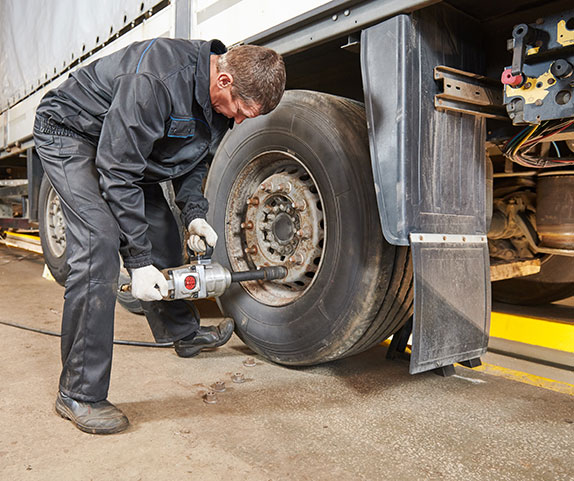Enhance Your Drive: Top-Notch GMC Tires Service at Morris Tires
Tire Service: The Impact of Climate Conditions
When it involves making certain ideal performance and safety and security when traveling, comprehending the effect of weather on tire solution is important. From scorching heat to icy roads, each weather condition component can significantly affect tire capability and total driving experience. By delving into the impacts of differing weather on tires, chauffeurs can get beneficial understandings that might improve their lorry's efficiency and long life. In this discussion, we will explore the detailed connection in between weather condition conditions and tire service, clarifying the relevance of weather-specific tire maintenance techniques and factors to consider.
Heat and Tire Efficiency
When revealed to heats, tires experience changes in performance that can considerably affect car safety and security and handling. The warm created from prolonged driving or warm climate problems causes the tire rubber to soften, leading to decreased tread life and increased wear. As the rubber comes to be softer, the tire's grasp when traveling diminishes, influencing braking distances and general grip. In extreme situations, extreme warm can even cause tire blowouts, presenting an extreme security danger to the car and its residents.

Cold Weather Condition Impacts
Winter conditions can have a considerable influence on tire performance and safety. As temperatures decrease, tire rubber can solidify, bring about reduced grip on icy or snow-covered roadways. In winter, tires might likewise lose air stress more rapidly, which can affect taking care of and gas effectiveness. Additionally, cold temperatures can create tire sidewalls to tense, raising the danger of damage from gaps or other roadway threats.
To reduce the impacts of chilly climate on tires, it is critical to consistently examine tire stress and inflate them to the manufacturer's advised degrees. Making use of wintertime or all-season tires designed for cool weather condition problems can also improve traction and grasp on icy or snowy roadways. Correct tire upkeep, consisting of normal examinations for wear and damage, comes to be much more important throughout chillier months to ensure optimal performance and safety.
Rainy Conditions Influence
Tires with damaged treads are more prone to hydroplaning, where a layer of water builds up in between the tire and the road surface, leading to loss of traction. To battle this, drivers must routinely check their tires for sufficient tread deepness and take into consideration investing in tires especially designed for damp problems.
Additionally, stormy weather can additionally decrease presence, making it testing for vehicle drivers to browse this site see the road in advance plainly (GMC Tire Service). In such conditions, it is vital to adjust driving rates as necessary and maintain a safe complying with distance to permit for sudden quits. Effectively inflated tires can likewise aid in keeping control on damp roadways by supplying far better handling and grip
Snow and Tire Security
Snow-covered roads pose special difficulties for chauffeurs, highlighting the significance of correct tire option and maintenance. When driving in snowy conditions, having the appropriate tires can make a considerable distinction in safety and security and performance. Winter season tires are made with special rubber substances and tread patterns to give better traction on snow and ice contrasted to all-season tires. The deeper treads and sipes of winter tires aid grip the road much better, decreasing the risk of gliding and slipping.

Additionally, motorists need to think about mounting tire chains in extreme snowy conditions. Tire chains provide additional traction by grasping the snow and ice, enhancing security and control. It is crucial to comply with producer directions when installing and utilizing tire chains to protect against damage to the tires and automobile (GMC Tire Service). By selecting the appropriate tires, preserving correct rising cost of living, and considering extra grip aids like tire chains, vehicle drivers can boost their security when browsing snow-covered roadways.
Weather-Related Tire Upkeep
When encountered with different climate problems, proper tire maintenance becomes a critical facet of car security and efficiency. Weather-related tire upkeep includes a series of techniques focused on making sure optimum tire function and durability in various climate circumstances. One essential element of weather-related tire upkeep is tire pressure policy. Varying temperature levels can trigger tire pressure to vary, impacting grip and fuel performance. Consistently readjusting and examining tire stress according to manufacturer referrals is important for risk-free driving in altering climate condition. Additionally, tire tread depth plays a substantial role in taking care of different weather elements. Tires with ample step deepness offer far better grip on damp or icy roadways, minimizing the risk of hydroplaning or skidding. Evaluating tire step routinely and changing tires when step wear gets to a specific deepness is crucial for maintaining traction and security in unfavorable weather. By prioritizing weather-related tire upkeep, vehicle drivers can enhance security, boost automobile efficiency, and lengthen the lifespan of their tires.
Final Thought
To conclude, weather have a substantial effect on tire performance and security. From warm impacting tire pressure and wear to winter decreasing grip, it is important to think about the weather when maintaining and check making use of tires. Stormy conditions can lower hold and cause hydroplaning, while snow can increase the threat of accidents if tires are not correctly furnished. Weather-related tire maintenance is important in making sure optimum efficiency and security on the roadways.
In this discussion, we will explore the elaborate partnership between weather conditions and tire solution, dropping light on the significance of weather-specific tire upkeep methods and considerations.
